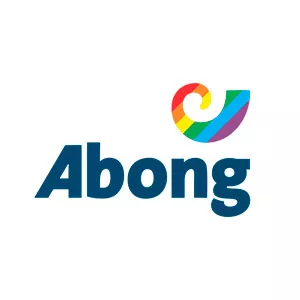09 de March de 2016
[:pb]Aconteceu em Salvador, no dia 3 de março de 2016, a Assembleia Abong que reuniu associadas da Bahia e Sergipe. Ao todo, foram 30 participantes, representando 23 entidades. O objetivo do encontro foi apresentar as atividades que vem sendo realizadas pela Abong, além de eleger a nova diretoria do colegiado baiano.
A abertura dos trabalhos foi feita pelo professor Luiz Roberto Moraes, da Universidade Federal da Bahia, que apresentou estudos técnicos sobre o saneamento básico na cidade de Salvador, levantando aspectos ligados ao meio ambiente, saúde pública e atuação da sociedade civil e poder público. Os participantes puderam debater o conteúdo trazido pelo professor, antes de entrar nas pautas internas da Assembleia.
Na sequência, Edmundo Kroger, coordenador geral do Cecup (Centro de Educação e Cultura Popular), trouxe um breve resumo das ações da Abong-BA, do qual é diretor estadual. Ele destacou o projeto “Compartilhar”, que mobilizou novas entidades, além do apoio da Bahia no processo de composição da Abong de Sergipe. Damien Hazard, membro da direção executiva nacional, também apresentou um panorama de atividades e ações de comunicação promovidas pela Abong.
Eliana Rolemberg (CESE) e Isadora Salomão (CRIA) apresentaram o MROSC – Marco Regulatório das Organizações da Sociedade Civil, destacando sobretudo os avanços que as novas leis proporcionarão. A conquista de instrumentos jurídicos próprios para as organizações; maior possibilidade de atuação em rede; controle de resultados; e questões ligadas ao novo formato de contratação e remuneração foram alguns pontos positivos destacados.
Na parte final da Assembleia, houve um diálogo sobre qual seria a nova composição da diretoria da Abong na Bahia. Por consenso, as entidades indicaram para assumir a direção estadual Eliana Rolemberg (titular) e Damien Hazard (suplente).
Representantes de novas entidades associadas à Abong, como a baiana Apalba e a sergipana Instituto Braços, parabenizaram o encontro, ressaltando a transparência e importância da Abong na articulação das organizações e no fortalecimento da sociedade civil.
(Fonte: Associação Vida Brasil)
[:]
SEE WHAT THEY SAY ABOUT US
In the name of historical and structural racism, many people look at us, black women, and think that we aren’t competent, intelligent, committed or have no identity. Our experience with CESE is different. We are a diverse group of black women. We are in varied places and have varied stories! It’s important to know this and to believe in us. Thank you CESE, for believing in us. For seeing our plurality and investing in us.
CESE was set up during the most violent year of the Military Dictatorship, when torture had been institutionalized, when arbitrary imprisonment, killings and the disappearance of political prisoners had intensified. The churches had the courage to come together and create an institution that could be a living witness of the Christian faith in the service of the Brazilian people. I’m so happy that CESE has reached its 50th anniversary, improving as it matures.
You have to praise CESE’s capacity to find answers so as to extend support to projects from traditional peoples and communities, from family farming, from women; its recognition of the multiple meanings of the right to land, to water and to territory; the importance of citizenship and democracy, including environmental racism and the right to identity in diversity in its discussion agenda, and its support for the struggles and assertion of the values of solidarity and difference.
I am a macumba devotee, but I love being with partners whose thinking is different from ours and who respect our form of organization. CESE is one such partner: it helps to build bridges, which are so necessary to ensure that freedom, diversity, respect and solidarity can flow. These 50 years have involved a lot of struggles and the construction of a new world.
Over these 50 years, we have received the gift of CESE’s presence in our communities. We are witness to how much companionship and solidarity it has invested in our territories. And this has been essential for us to carry on the struggle and defence of our people.
When we hear talk of the struggles of the peoples of the waters, of the forests, of the semi-arid region, of the city peripheries and of the most varied organizations, we see and hear that CESE is there, at their side, without replacing the subjects of the struggle. Supporting, creating the conditions so that they can follow their own path. It is this spirit that we, at ASA, want you to maintain. We wish you long life in this work to support transformation.






















